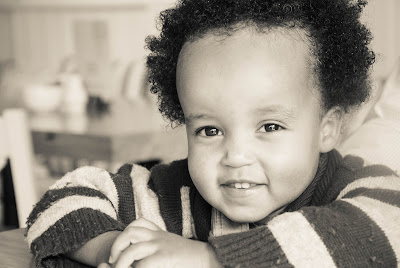 |
| you have been warned |
Recently, two of my (online) friends have announced that they are starting the process to adopt from Ethiopia. Both made the announcement with some level of trepidation. Both were clearly concerned that they were going to be attacked for their choices.
Other friends of mine - friends who are nearing the end of looooong waits to adopt - have been reluctant to ask for support during this last, most horrible phase of waiting. They are worried that the tide of sympathy is turning, and that they can't really ask for support because people no longer approve of what they are doing.
J and I began our Ethiopian adoption in 2008. I guess that things are different now, and that means that people who happily put their names on waiting lists in 2008 can be prone to a bit of sniffy judgementalism about people doing it in 2012.
I have a few words to say about that.
I was thinking: what's different about adopting in 2012 rather than 2008? Here's what I think.
On the Ethiopian end, there is more oversight.
There are more regulations.
There is better scrutiny of paperwork and procedures.
There is at least one fewer dodgy agency operating.
For adopters from the US, your embassy is also much more serious about investigating paperwork irregularities.
There is more information around, too, of course. Over the last few years, some really awful horror stories from the recent wave of Ethiopian adoptions have come to light. I think that's why people can look askance at those who are choosing to start an adoption now - as if they are saying "but don't you know what could happen?"
However - and I'm saying this cautiously - I don't think that this new knowledge is a reason for us to criticise people who are starting adoptions in this post-Fly-Away-Children era. They are certainly not a reason for those of us who were part of this first wave to feel any kind of superiority to those who are adopting now. After all, those horror stories are from our wave of adoptions. I think it's fair to say that we were much more at risk, ethically, four years ago, than new Ethiopia families are now, for all the reasons above. And if we didn't know that there were ethical risks back then, it can only be because we were not paying attention.
I know that the evidence is there now. But the evidence was there then, too. It was always pretty clear that there were going to be risks and there were going to be charlatans. There are risks now. We know it. But the same was true two years ago, and three years ago, and four years and always. Anybody who went into an adoption in 2008 thinking that they didn't need to be really, really careful about ethics was not paying attention.
Which is not to say, of course, that I think every Ethiopian adoption now is a good idea, or that we shouldn't hold each other accountable for making super-dumb (or dangerous) choices. Anybody who goes into an adoption now without being really, really careful about ethics is doing something inexcusable, obviously Anybody who goes into an adoption now should be incredibly careful, incredibly wary, incredibly sober-minded, incredibly willing to question themselves and everyone else, painfully willing to change course if red flags start to go up, incredibly aware of what those red flags might be, incredibly honest with themselves about the realities of how long the queues are (and I think that goes well beyond infant adoption in a lot of cases now), incredibly open and honest with themselves about what their real motives are, incredibly aware that most of the world's 'orphans' have living family, incredibly educated about post-adoption family reality and - of course - incredibly patient.
But that's always been true, and it always will be, whether international or domestic, infant or older child, special needs or not. From time to time, a new place becomes the big thing in International adoption and it just seems like everything is going to be fine there - that there is a big room somewhere full of lonely babies and it's not like Guatamala, it's not like Vietnam, no, of course not, there won't be any corruption, the people of this country love children too much. It can make us feel like we don't have to pay attention. And now, I guess the PAPs for somewhere else are talking about how its not like Ethiopia. People, I bet you ten million space dollars that it is. Pay attention.
Oh, and friends - you know who you are - I'm really, really, happy for you. Congratulations.

































